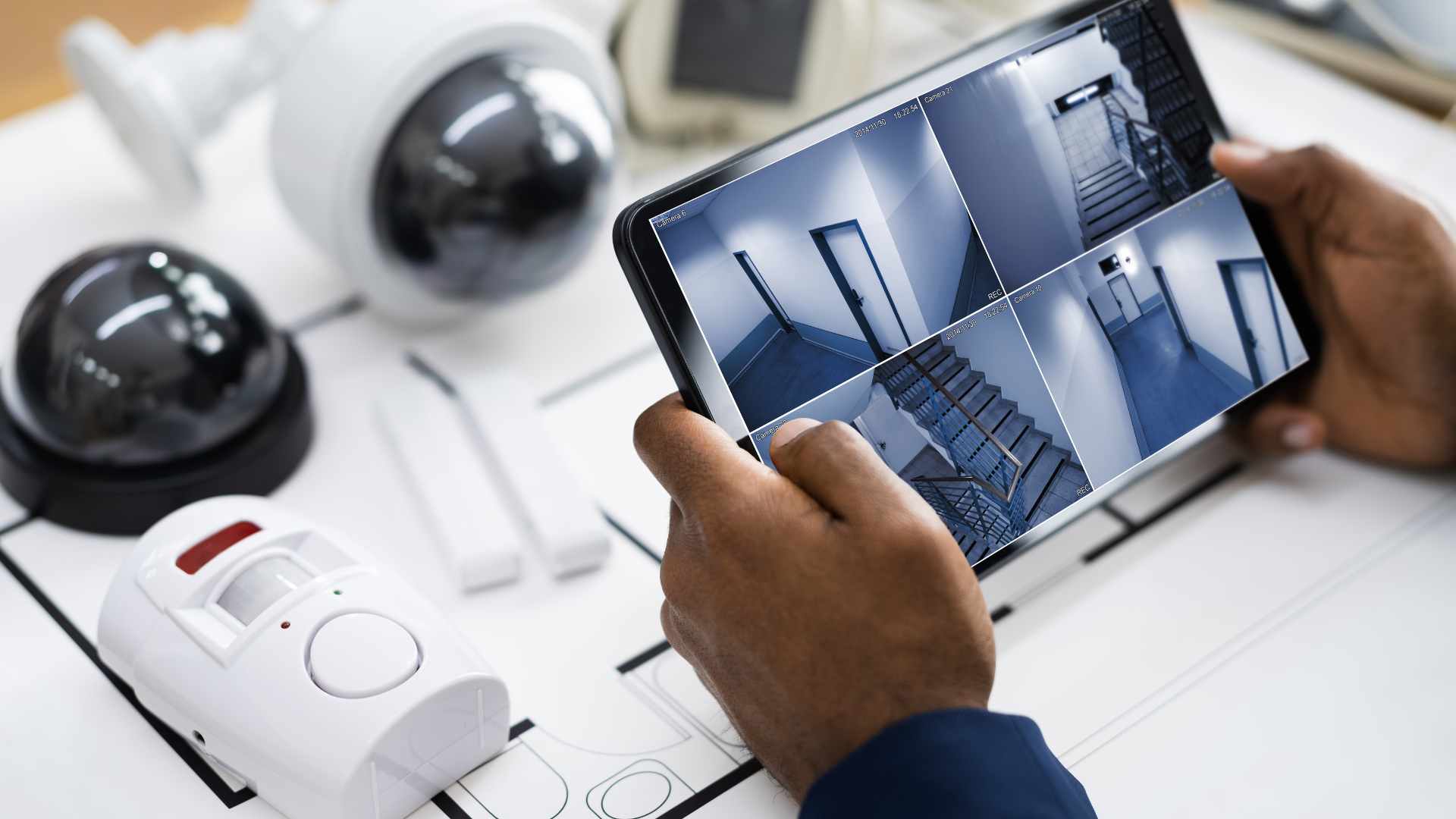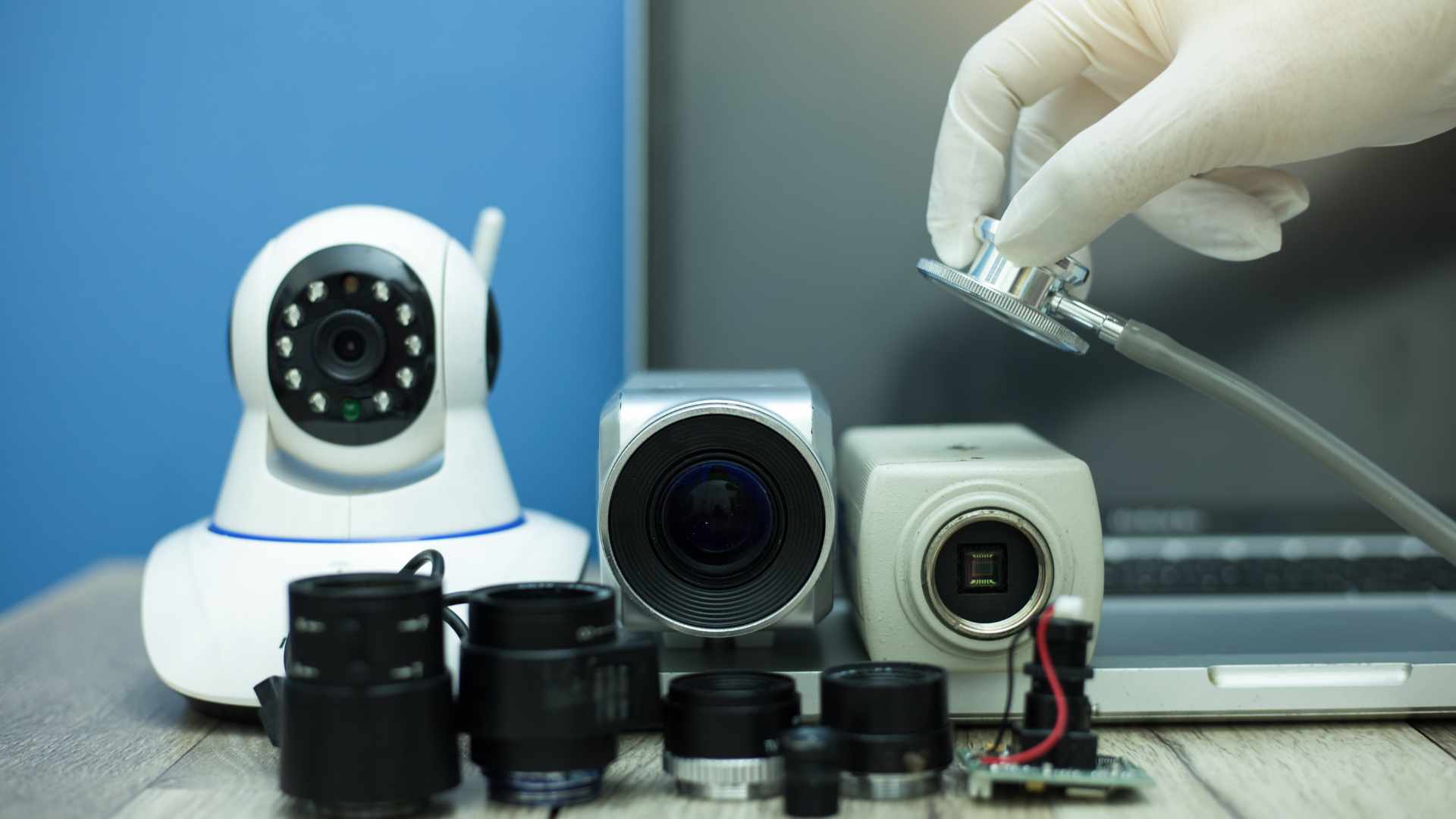With the rise of advanced technology, automated security systems offer a modern solution to protecting your property and loved ones. These systems deter potential intruders and provide peace of mind by allowing you to monitor and control your home security from anywhere. However, with many available options, choosing the right automated security system can take time and effort.
This guide aims to simplify the decision-making process by exploring the key factors you should consider when selecting an automated security system for your home. Whether you’re looking for basic alarm systems or comprehensive smart home integration, understanding your specific security needs, budget, and the latest features will help you make an informed choice.
What Are Your Home Security Needs?
Creating a secure home environment involves a combination of advanced technology and practical measures. By integrating various security components, regularly updating your systems, and following practical tips, you can significantly enhance your home’s security and ensure peace of mind for you and your family.
Securing your home is crucial in today’s world, with an increasing need for effective measures to protect your property and loved ones. Understanding your home security needs and the available options can help you create a comprehensive security system tailored to your specific requirements. Here are the key points from various sources on home security essentials.
Practical Tips for Home Security
Enhancing Physical Security
- Install Security Cameras: Position cameras to cover key areas such as entrances, driveways, and backyards. Choose models with features like motion-triggered recording and night vision.
- Use Motion-Activated Lights: Illuminate dark areas around your home to deter intruders. Place lights in strategic locations like the front and back of your house.
- Upgrade Locks and Fencing: Use strong, reliable locks on all doors and windows. Ensure gates and fences are in good condition and difficult to scale.
- Secure Outdoor Buildings: Protect sheds and garages with secure locks and consider adding alarms. Lock tools and ladders that could be used to break into your home.
Deterring Potential Intruders
- Visible Security Alarms: Install alarms visibly to deter intruders. Check with your insurance provider for potential discounts on approved systems.
- Keep Valuables Out of Sight: Store valuables in a safe and keep them away from windows. Use heavy-duty safes that can be bolted to the floor or walls.
- Create the Illusion of Occupancy: Use smart plugs and timers to switch lights and appliances on and off, making it appear as though someone is home.
Additional Security Measures
- Mark and Photograph Valuables: Mark your valuables with a postcode and house number to aid in recovery if stolen. Take photos to help with insurance claims.
- Secure Spare Keys: Avoid leaving spare keys in obvious places like under mats or pots. Use a wall-mounted key safe instead.
- Use Dense Plants and Gravel Paths: Plant thorny shrubs around your home’s perimeter and maintain gravel paths, which are noisy to walk on, to alert you of approaching people.
How To Choose The Right Automated Security System for Your Home?
When selecting a home security system, it’s crucial to consider installation options, costs, monitoring choices, smart home integration, types of equipment, and connection methods. By focusing on these key features, you can ensure that you choose a system that meets your security needs and enhances your peace of mind.
Selecting the right home security system involves considering various features to ensure you get the best protection for your property. Modern security systems offer a plethora of options designed to enhance safety, convenience, and peace of mind. Here are some key features to look for when choosing a home security system.
Monitoring Options
Professional monitoring offers 24/7 protection from security experts who can contact emergency services if needed. This provides peace of mind with constant surveillance but typically involves a monthly fee. DIY monitoring allows you to receive alerts and notifications directly to your phone without monthly fees. However, you are responsible for notifying authorities when an alarm is triggered.
Connection Types
Landline-based security systems use the home’s landline connection, making them the least expensive option but also vulnerable to tampering. Broadband systems use high-speed internet for communication but lose connection if the power goes out. Cellular systems use a cellular chip for communication, similar to mobile phones, making them reliable and tamper-proof, though often the most expensive option.
High-resolution cameras are available in both indoor and outdoor options. Indoor cameras are smaller and more discreet, while outdoor cameras are built to withstand the elements and are typically more robust. Features to look for in cameras include high resolution, a wide field of view, motion detection, and audio recording.
Budget Considerations
Balancing budget considerations with the desire for an effective home automation and security system requires careful planning and prioritisation. By starting small, leveraging compatible devices, and considering long-term savings, you can achieve a smart, secure, and cost-efficient home environment. Whether opting for basic setups or gradually expanding to more advanced systems, the key is to make informed decisions that align with your needs and financial capacity. When planning to implement home automation and security systems, it’s crucial to consider budget constraints while ensuring you get the best value for your investment..
Installation: DIY or Professional?
Choosing between DIY and professional installation for your home security system depends on your technical skills, budget, and personal preferences. DIY installation offers flexibility and cost savings but requires time and effort. Professional installation provides convenience and expertise but comes with higher costs and long-term commitments. Evaluate your specific needs and circumstances to make the best choice for your home security.
When setting up a home security system, you have two main installation options: doing it yourself (DIY) or hiring a professional. Both methods have their advantages and disadvantages, and the right choice depends on your specific needs, technical skills, and budget.
Compatibility with Existing Home Devices
Ensuring the seamless operation of various smart devices within your home can be a challenging task due to compatibility issues. As the smart home market continues to expand, understanding how to integrate new devices with your existing setup becomes increasingly important. This blog will explore strategies and solutions to achieve high compatibility among smart home devices, leveraging insights from various sources.
By adopting these strategies, homeowners can enhance the compatibility of their smart home devices, leading to a more integrated, efficient, and user-friendly smart home environment.
The Importance of Smart Home Device Compatibility
- Seamless Functionality: Achieving a harmonious smart home environment where devices communicate effectively is crucial for user convenience and enhanced functionality.
- Avoiding “Device Divorce”: It’s frustrating when new devices don’t integrate well with existing systems, leading to inefficiencies and user dissatisfaction.
- Centralised Control: Utilising a centralised platform or app to manage all smart home devices can simplify the user experience and improve control over the home environment.
Conclusion
Choosing the right automated security system for your home is a crucial step towards ensuring your family’s safety and peace of mind. With the wide range of options available today, it’s essential to carefully evaluate your specific security needs, budget, and the latest technological features. Whether you opt for a basic system or a comprehensive smart home integration, understanding the key components and features will help you make an informed decision.
By prioritising essential security elements such as cameras, motion detectors, and smart locks, and by considering the added benefits of professional monitoring and smart home integration, you can create a robust security setup tailored to your home. Additionally, weighing the pros and cons of DIY versus professional installation will ensure that your security system is effectively implemented and maintained.
Incorporating practical tips and enhancing physical security measures can further bolster your home’s protection. Remember, the ultimate goal is to create a safe and secure environment where you and your loved ones can always feel protected. By following this guide, you are well on your way to selecting the best automated security system for your home, providing a comprehensive shield against potential threats and ensuring peace of mind for years.
FAQs About Automated Security System
What Key Features Should You Look For In An Automated Security System?
When selecting an automated security system, look for key features such as security cameras, motion detectors, door and window sensors, smart locks, glass break sensors, and environmental sensors. Additionally, consider systems that offer integration with other smart devices, remote access and control via mobile apps, and professional monitoring services.
How Do You Determine Your Specific Home Security Needs?
To determine your home security needs, assess the layout and vulnerabilities of your property. Identify key areas that need surveillance, such as entrances, driveways, and backyards. Consider the level of security you require, whether basic alarm systems or comprehensive smart home integration. Evaluating past security incidents and local crime rates can also help you tailor your security measures.
What Are The Differences Between Diy And Professional Installation?
DIY installation involves setting up the security system yourself, which offers flexibility and cost savings but requires time and technical skills. Professional installation provides convenience and expertise, ensuring the system is correctly installed and maintained, but it comes with higher costs and potential long-term commitments. The choice depends on your technical abilities, budget, and preference for professional support.
How Important Is Smart Home Integration In A Security System?
Smart home integration enhances the functionality and convenience of a security system. It allows seamless control and monitoring of various devices, such as smart locks, cameras, lights, and thermostats, through a centralised platform or mobile app. Integration with voice assistants like Alexa, Google Assistant, and Siri further simplifies managing your home security, making it a valuable feature to consider.
What Should You Consider When Choosing Between Different Monitoring Options?
When choosing different monitoring options, consider whether you prefer professional monitoring or DIY monitoring. Professional monitoring offers 24/7 surveillance by security experts, ensuring immediate response to alerts but usually involves a monthly fee. DIY monitoring allows you to receive alerts directly to your phone without monthly fees, but you are responsible for contacting authorities in case of emergencies. Assess your budget, lifestyle, and comfort level with managing the system yourself to make the best choice.


